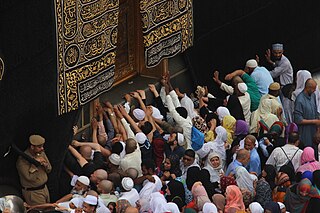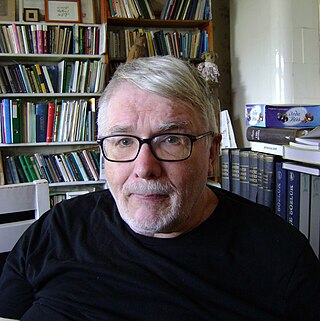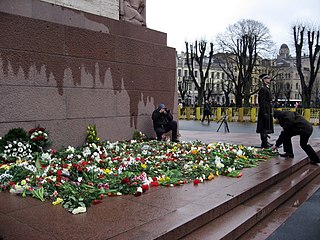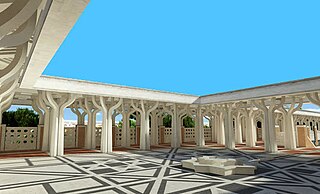
Muslims are people who adhere to Islam, a monotheistic religion belonging to the Abrahamic tradition. They consider the Quran, the foundational religious text of Islam, to be the verbatim word of the God of Abraham as it was revealed to Muhammad, the main Islamic prophet. Alongside the Quran, Muslims also believe in previous revelations, such as the Tawrat (Torah), the Zabur (Psalms), and the Injeel (Gospel). These earlier revelations are associated with Judaism and Christianity, which are regarded by Muslims as earlier versions of Islam. The majority of Muslims also follow the teachings and practices attributed to Muhammad (sunnah) as recorded in traditional accounts (hadith).
Islamophobia is the irrational fear of, hatred of, or prejudice against the religion of Islam or Muslims in general, especially when perceived by outsiders as a geopolitical force or a source of terrorism.

Islam is the most practiced religion in Turkey. As much as 90% of the population follows the Sunni Madhab of Islam. Most Turkish Sunni Muslims belong to the Hanafi school of jurisprudence. The established presence of Islam in the region that now constitutes modern Turkey dates back to the later half of the 11th century, when the Seljuks started expanding into eastern Anatolia.

Islam is the second largest religion in Australia. According to the 2021 Census in Australia, the combined number of people who self-identified as Muslims in Australia, from all forms of Islam, constituted 813,392 people, or 3.2% of the total Australian population. That total Muslim population makes Islam, in all its denominations and sects, the second largest religious grouping in Australia, after all denominations of Christianity.
Charlie Hebdo is a French satirical weekly magazine, featuring cartoons, reports, polemics, and jokes. The publication has been described as anti-racist, sceptical, secular, libertarian and within the tradition of left-wing radicalism, publishing articles about the far-right, religion, politics and culture.
Cultural Muslims, also known as nominal Muslims, non-practicing Muslims or non-observing Muslims, are people who identify as Muslims but are not religious and do not practice the faith. They may be a non-observing, secular or irreligious individuals who still identify with Islam due to family backgrounds, personal experiences, ethnic and national heritage, or the social and cultural environment in which they grew up. However, this concept is not always met with acceptance in conservative Islamic communities.

Islam is the second-largest religion in Europe after Christianity. Although the majority of Muslim communities in Western Europe formed recently, there are centuries-old Muslim communities in the Balkans, Caucasus, Crimea, and Volga region. The term "Muslim Europe" is used to refer to the Muslim-majority countries in the Balkans and the Caucasus and parts of countries in Eastern Europe with sizable Muslim minorities that constitute large populations of indigenous European Muslims, although the majority are secular.

Islam is the second largest religion in Norway after Christianity. As of 2023, the number of Muslims living in Norway was 182,607. The majority of Muslims in Norway are Sunni, with a significant Shia minority. 55 percent of Muslims in the country live in Oslo and Viken. The vast majority of Muslims have an immigrant background, and very few Norwegians are Muslim.

Islam is the second largest religion in Belgium after Christianity. The exact number of Muslims in Belgium is unknown but various sources estimate that 4.0% to 7.6% of the country's population adheres to Islam. The first registered presence of Islam in Belgium was in 1829, but most Belgian Muslims are first-, second-, or third-generation immigrants that arrived after the 1960s.

Uldis Bērziņš was a Latvian poet and translator.

Remembrance Day of the Latvian Legionnaires, often known simply as the Legionnaire Day or 16 March in Latvia, is a day when soldiers of the Latvian Legion, part of the Waffen-SS, are commemorated. From 1998 until 2000, it was officially recognized as a "Remembrance Day for Latvian soldiers" by the Saeima.
Prostitution in Latvia is legal and regulated. The country is a destination for sex tourism.

Nils Ušakovs is a Latvian politician, former mayor of Riga and former journalist. He has been the board chairman of the left-wing party alliance Harmony Centre (2005–2014) and afterwards board chairman of the Social Democratic Party "Harmony" (2014–2019). In 2009 Ušakovs was elected the Mayor of Riga, becoming the first Riga Mayor of Russian descent since Latvia's restoration of sovereignty in 1991, a position he continuously held until his dismissal in 2019.

Islam in Georgia was introduced in 654 when an army sent by the Third Caliph of Islam, Uthman, conquered Eastern Georgia and established Muslim rule in Tbilisi. Currently, Muslims constitute approximately 9.9% of the Georgian population. According to other sources, Muslims constitute 10-11% of Georgia's population.

American Muslims often face Islamophobia and racialization due to stereotypes and generalizations ascribed to them. Due to this, Islamophobia is both a product of and a contributor to the United States' racial ideology, which is founded on socially constructed categories of profiled features, or how people seem.

On 7 January 2015, at about 11:30 a.m. in Paris, France, the employees of the French satirical weekly magazine Charlie Hebdo were targeted in a shooting attack by two French-born Algerian Muslim brothers, Saïd Kouachi and Chérif Kouachi. Armed with rifles and other weapons, the duo murdered 12 people and injured 11 others; they identified themselves as members of al-Qaeda in the Arabian Peninsula, which claimed responsibility for the attack. They fled after the shooting, triggering a manhunt, and were killed by the GIGN on 9 January. The Kouachi brothers' attack was followed by several related Islamist terrorist attacks across the Île-de-France between 7 and 9 January 2015, including the Hypercacher kosher supermarket siege, in which a French-born Malian Muslim took hostages and murdered four people before being killed by French commandos.
Islamophobia in the media refers to negative coverage of Islam-related topics, Muslims, or Arabs by media outlets in a way that is hostile, untrue, and/or misleading. Islamophobia is defined as "Intense dislike or fear of Islam, especially as a political force; hostility or prejudice towards Muslims", and the study of how and to what extent the media furthers Islamophobia has been the subject of much academic and political discussion.
Islamophobia in Canada refers to a set of discourses, behaviours and structures which express feelings of anxiety, fear, hostility and rejection towards Islam or Muslims in Canada.
Islamophobia in France holds a particularly political significance since France has the largest proportion of Muslims in the Western world, primarily due to the migration from Maghrebi, West African, and Middle Eastern countries. The existence of discrimination against Muslims is reported by the media in the Muslim world and by the perceived segregation and alienation of Muslims within the French community. The belief that there is an anti-Muslim climate in France is heavily criticised by some members of the French Muslim community who terms it an 'exaggeration'.

Islamophobia is characterized by a hatred against the religion of Islam and those perceived to be following the religion, typically fueled by fear and hatred and sustained through the evolving stereotype of the Muslim identity. It has become increasingly common and widespread throughout the world, in particular since the September 11 attacks in the United States, however it existed in society before this. In Europe, there has been an increase in cultural tensions between national majorities and marginalized Muslim countries, as shown by the results of the 2009 elections in the European Parliament with a large vote toward anti-immigration. Within Italy, there is a large Islamic presence of approximately 1.25 million people, stemming from the widespread migration and settlement that began in the 1970s, in particular from North Africa. The Islamic population of Italy increasingly faces challenges when it comes to their position in society, with the increasing cultural hostility that stems from the growing presence of Islamophobia. Islamophobia has been present within Italy for many years; for example, in the 1920s, Muslims were not permitted to settle in the country due to their religion being viewed as "against common morality." The intensity of Islamophobia in Italy is enhanced by the historical religious structure of the state – which is heavily based on the Catholic Church.










